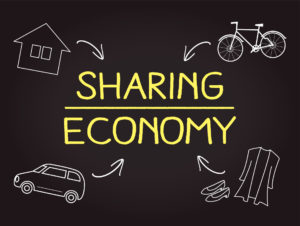 I was talking with a community college librarian the other day and she commented that her 20-something patrons come into the library asking to borrow textbooks for the entire semester, not realizing that they need to go to a bookstore and buy the textbook if they want it for more than a few weeks.
I was talking with a community college librarian the other day and she commented that her 20-something patrons come into the library asking to borrow textbooks for the entire semester, not realizing that they need to go to a bookstore and buy the textbook if they want it for more than a few weeks.
Their confusion makes sense; many public libraries are doing away with fines for overdue books altogether; as the Denver Public Library says, “No Shame, No Blame, No Fines.” (Of course, you can’t borrow any more books until you return your overdue material.)
Adding to the confusion is open-access content—often peer-reviewed articles appearing next to articles that incur a fee to access—and content shared with a Creative Content license permitting others to use, modify and build upon the work.
This got my friend and me thinking about a distinction that is clear to info pros but that eludes many library users. Librarians understand the difference between content that they own—a DVD or a physical book, for example—and the digital content they license but do not own, e-books being the current high-profile example but also including licensed databases, audiobooks and streaming content.
Many library users, on the other hand, live their lives in the sharing economy. They are accustomed to being able to use rather than own a product. Why sink all that money in a car when they can hop on an e-scooter to get across town, hail a Lyft or Uber if the weather’s bad, or get a ZipCar if they want to make a bigger commitment? They stream videos, paying for the one-time experience of watching a show rather than wanting to own a DVD. When they travel, they share someone else’s home through Airbnb or VRBO. In other words, they expect to have transactional access to what they need, when they need it.
While the distinction between owned and rented or licensed content is vitally important to information professionals in whatever our position, we must remember that most of our clients are much less focused on who “owns” an item or digital content they access through the library.
How can info pros best raise awareness of this distinction among their clientele? And how can we best advocate for the least restrictive access to information while respecting the value of that content?
